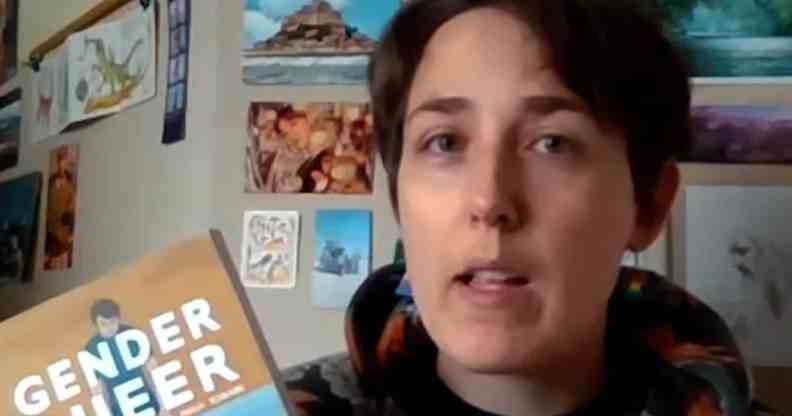Gender Queer and other LGBTQ+ books top list of most complained-about titles in US libraries

Gender Queer author Maia Kobabe says it’s “really dangerous” to restrict how young people can access information about the LGBTQ+ community, sex and health. (YouTube/GLAAD)
Gender Queer has topped a list of the most complained-about books in US libraries, alongside several other LGBTQ+-themed titles.
The American Library Association (ALA) has released a report into banned, reported and complained-about books in US schools and libraries, with Maia Kobabe’s 2019 graphic memoir topping the list.
All Boys Aren’t Blue, by George M Johnson (2020), Flamer by Mike Curato (2020) and This Book is Gay by British author Juno Dawson (2014) also made the list, with complaints about the books citing “LGBTQIA+ content” and “sexual education”.
The ALA explained that 2022 saw the “highest number of attempted book bans” since it began compiling data about censorship in libraries “more than 20 years ago”.
The organisation recorded 1,269 demands to censor library books last year, with the organisation claiming challenges and complaints can result in a book being restricted or withdrawn from the library.
“The unparalleled number of reported book challenges… nearly doubles the 729 book challenges reported in 2021,” the report read.
It added that the real number is likely higher, as its figures rely on accounts from libraries.
“All the challenges are openly saying that young people should not be exposed to LGBTQ+ materials,” Deborah Caldwell-Stone, director of ALA’s Office for Intellectual Freedom, told ABC News.
Gender Queer author Kobabe previously explained the need for LGBTQ+ themed books for young people in an op-ed for the Washington Post.
Kobabe wrote: “By high school, I had met multiple out gay, lesbian and bisexual people, but I didn’t meet an out trans or non-binary person until I was in grad school. The only place I had access to information and stories about transgender people was in the media — mainly, in books.
“Queer youth are often forced to look outside their own homes, and outside the education system, to find information on who they are.
“Removing or restricting queer books in libraries and schools is like cutting a lifeline for queer youth, who might not yet even know what terms to ask Google to find out more about their own identities, bodies and health.”
PinkNews has contacted Maia Kobabe for comment.
How did this story make you feel?

